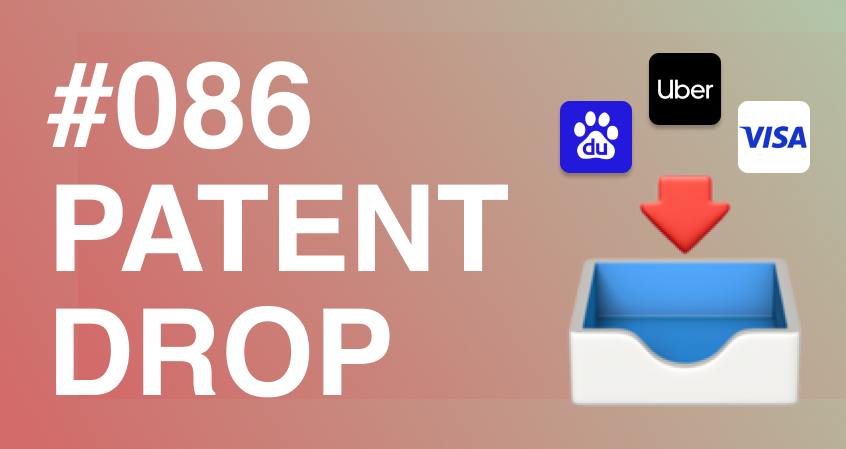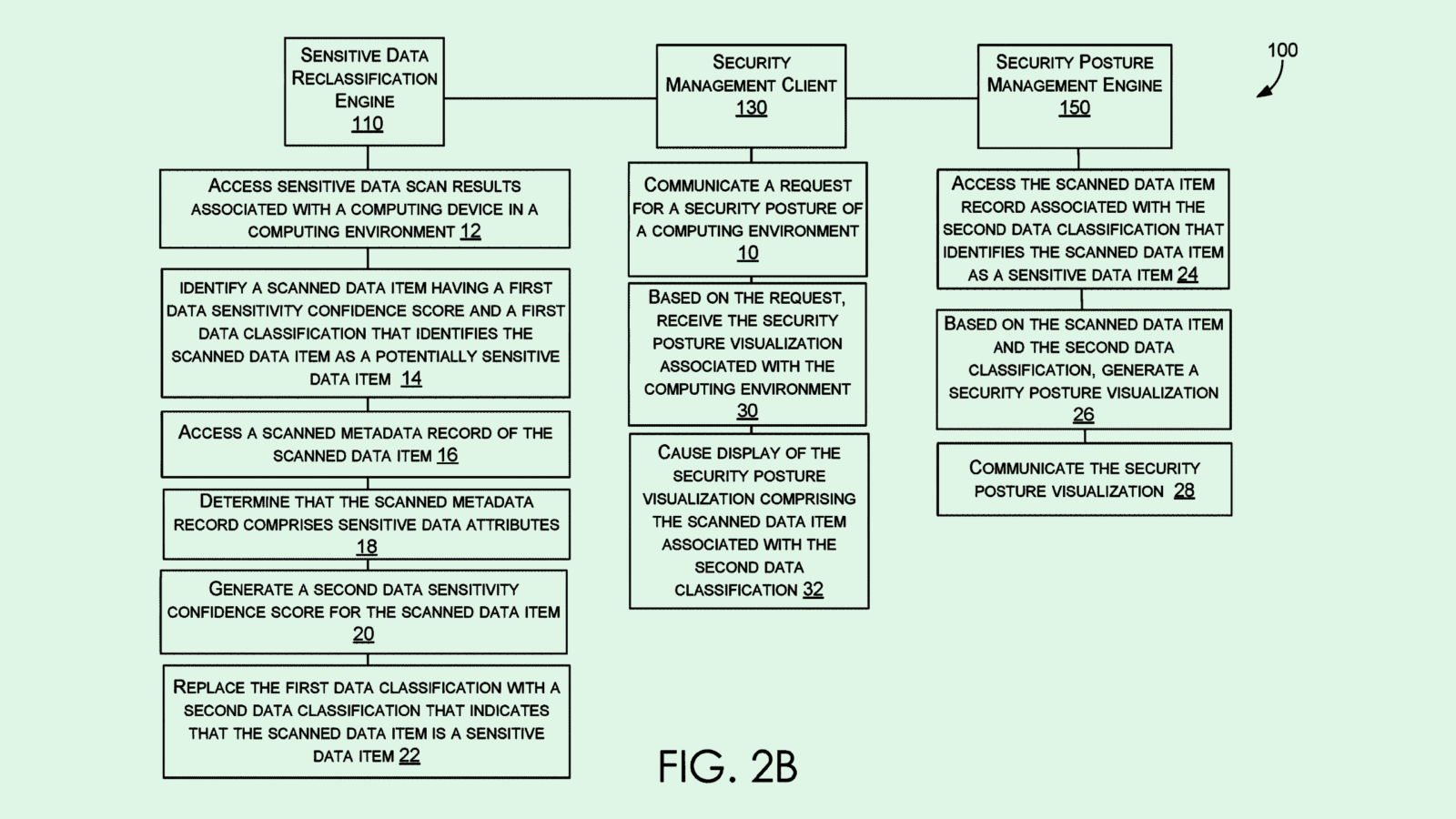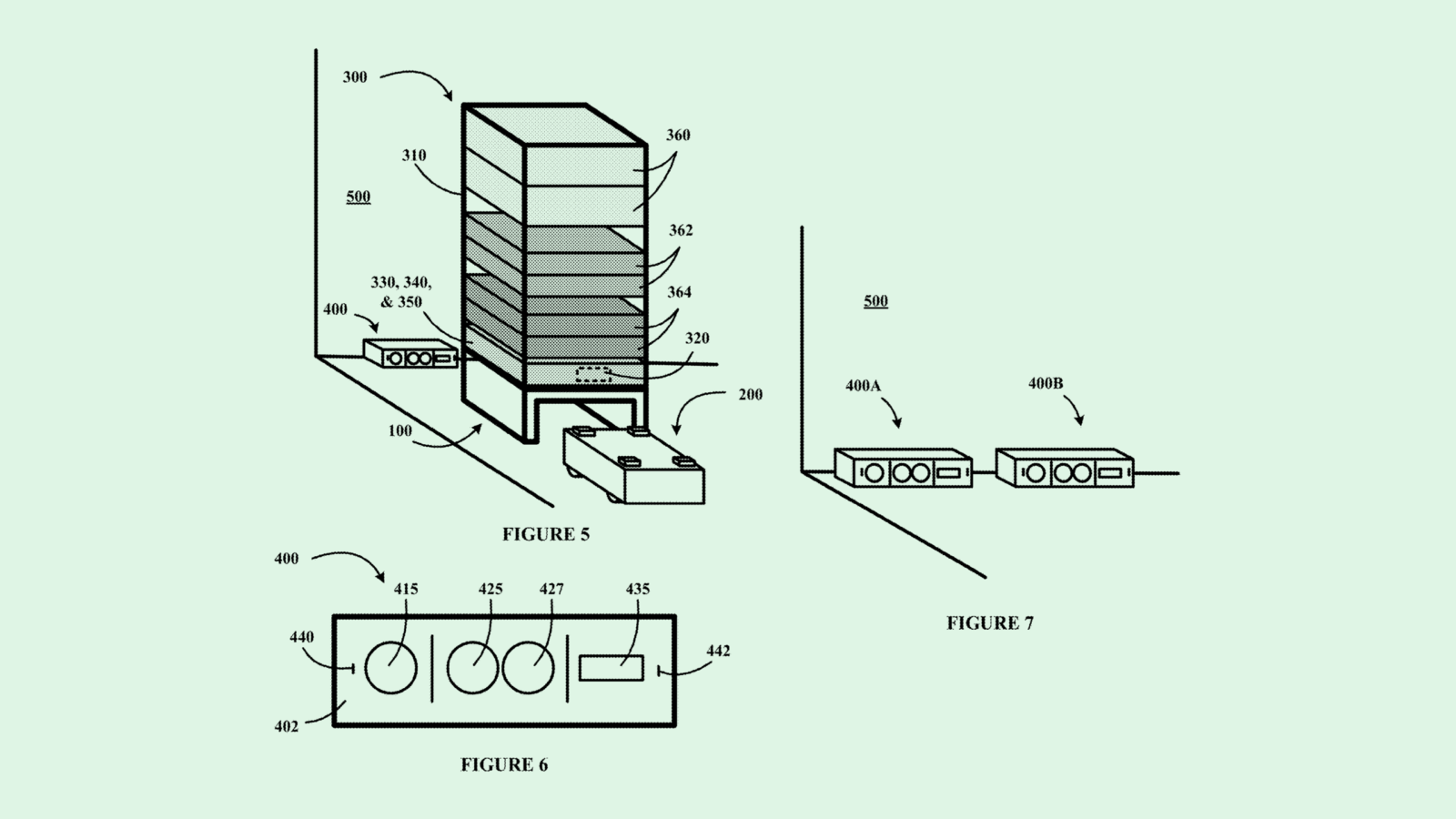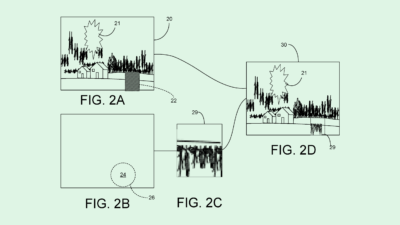Sign up to uncover the latest in emerging technology.
Plus: Baidu makes its mark; Visa’s data locker
Happy Monday and welcome to Patent Drop!
Today in Patent Drop: Uber wants to get to know your routines so well it can predict them; Baidu wants to make its mark on its complex neural networks; and Visa wants to share its data… without actually sharing its data.
But before we get started,
As you may be aware, cybersecurity is an important issue and only growing more so. Atakama’s innovative approach can protect businesses by safeguarding data even if a breach occurs. And right now, you can invest in that novel protection.
Learn more about Atakama right here.
Let’s dive right in.
#1. Uber gets to know you
Uber wants to anticipate your needs.
The company is seeking to patent tech that can forecast user requests based on context data. It works like this: Using a “machine-learned model,” trained on “context data associated with a user,” including historical interaction and activity data, profile information and “sensor data” that can track location, the platform can discern whether or not to perform “pre-request matching,” or preparing to respond to a request it expects you to make in the app by notifying a driver.
If a driver then gets a “pre-request match” from Uber, they will be directed to relocate based on the system’s forecast, and that driver can either accept or decline the pre-request the same way that they could any other request.
For example, if you have a habit of going to your favorite restaurant or bar every Friday night, this system would pick up on that, and prompt an Uber driver to be ready to go by your house to pick you up. Similarly, if you order Sweetgreen to your office at noon every Wednesday for your company-wide staff meeting, this system would recommend a driver go to the restaurant early, ready to pick up your lunch. Yeah, it’s a little creepy, more on that later.
“The network system can manage a service requester profile for each service requester indicating routine start and/or end locations (or regions), and/or routine routes (e.g., for a transportation service from home to work and/or vice versa) and preferred service types,” Uber said in its filing.
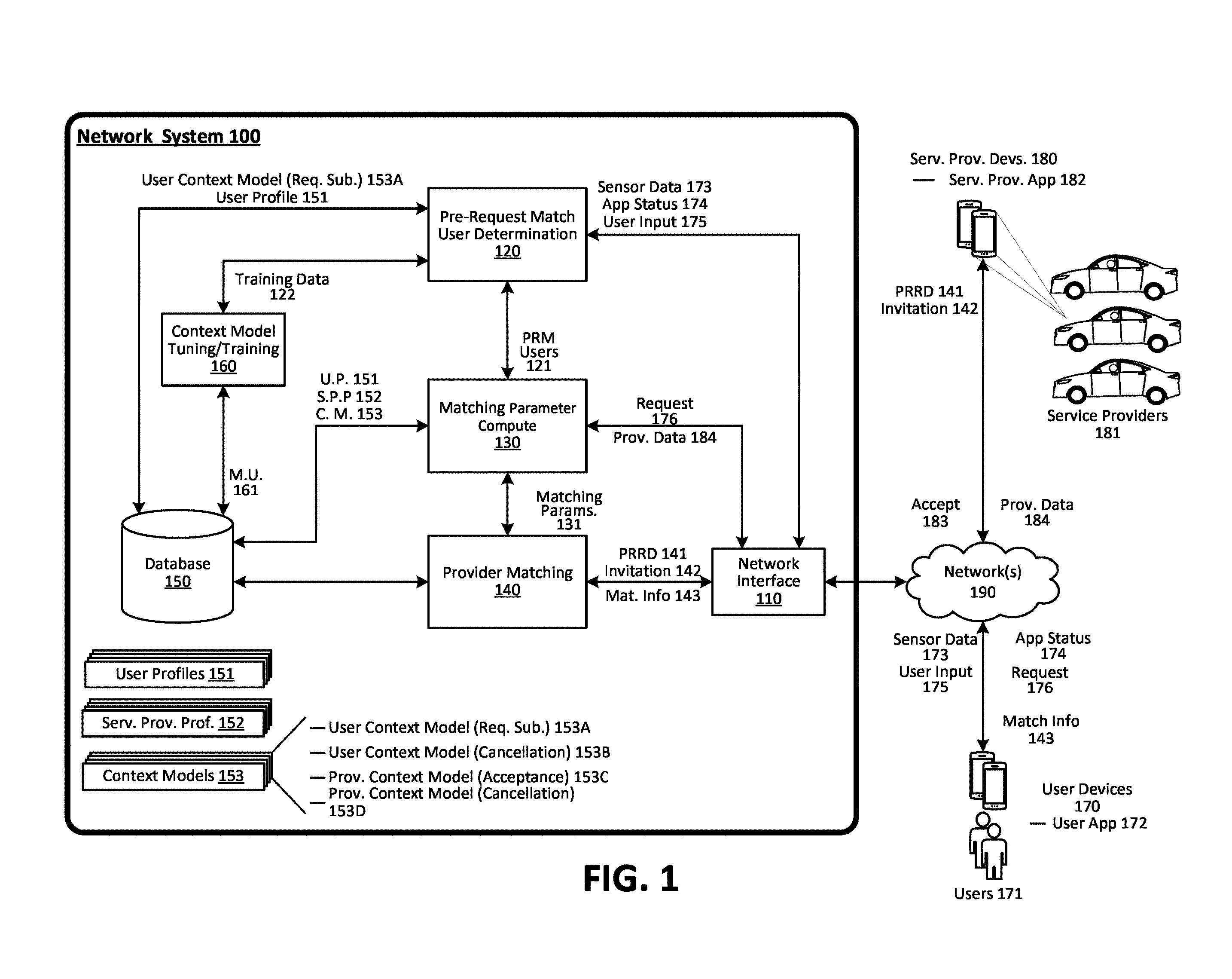
Uber adopting AI in this way seems like a no-brainer. The company has consistently faced driver shortages for years, so prepping the drivers it does have to be ready for orders or riders when they come in could potentially cut down on wait times while also helping those drivers maintain the high ratings they need to continue working.
This tech also represents another example of machine learning being used to monitor and predict user habits, ergo, helping the companies make more money by utilizing your data. Visa is tinkering with something similar, attempting to use a trained AI model to predict when a customer has stopped using their credit cards to try and draw them back in with rewards. Meta, and eBay are both working on AI that keeps an eye on your scrolling or browsing habits to send extremely targeted ads.
While the end result is inevitably a much more personalized experience for the user, the company implementing this AI generally ends up with more money in their pockets – otherwise, they probably wouldn’t even be bothering.
However, this brings up the issue of convenience versus privacy in data use. The tech outlined in this patent has the capability to monitor its users with precision, looking not just at user activity, but tracking your conditions with a host of personal sensor data (“geolocation data, barometer data, accelerometer data, e-compass data, gyroscope data, ambient light sensor data,” according to the filing).
Some users may see the benefit in this ease of use, but others may not be as comfortable with Uber using their data to predict their behavior being the trade-off for a quicker ride or salad delivery.
#2. Baidu’s neural network speakeasy
As Baidu fights for relevancy in the AI race, the company may be seeking to mark its work.
The Chinese search giant is seeking to patent a system for “robust watermarking of deep neural networks.” Here’s how it works: Baidu’s method trains a neural network to give a very specific output when fed a certain input. That output is, essentially, the watermark. Whether it be a specific word, code, image or pattern, it’s specific enough to the neural network’s creator, that they can tell that the neural network was made by them.
Baidu’s tech is new in that it doesn’t significantly impact the output of a neural network to achieve this watermark, as it changes what the patent filing calls “key samples,” or outputs that have no significant impact on the functionality of the mode. And finding which output would actually have a Baidu watermark would be like “finding a needle in a haystack,” said Micah Drayton, partner and chair of the technology practice group at Caldwell Intellectual Property Law
“That’s the genius of this: It’d be hard to tell that you’ve done this to it,” said Drayton. “You don’t know what to look for, and because these changes are just for certain words.”
If this sounds esoteric, think about it this way: You’re entering a speakeasy, and are stopped at the door by a bouncer. To get in, you need to have a very specific dialog back and forth with said bouncer to signify that you know where you are, and belong in the club. But to a passerby, this coded set of phrases holds no significant meaning. It just looks like a conversation.
“Although some existing watermarking techniques have shown the ability to withstand certain attacks, robustness is not an underlying optimization objective of existing watermark embedding processes.” Baidu said in the filing.
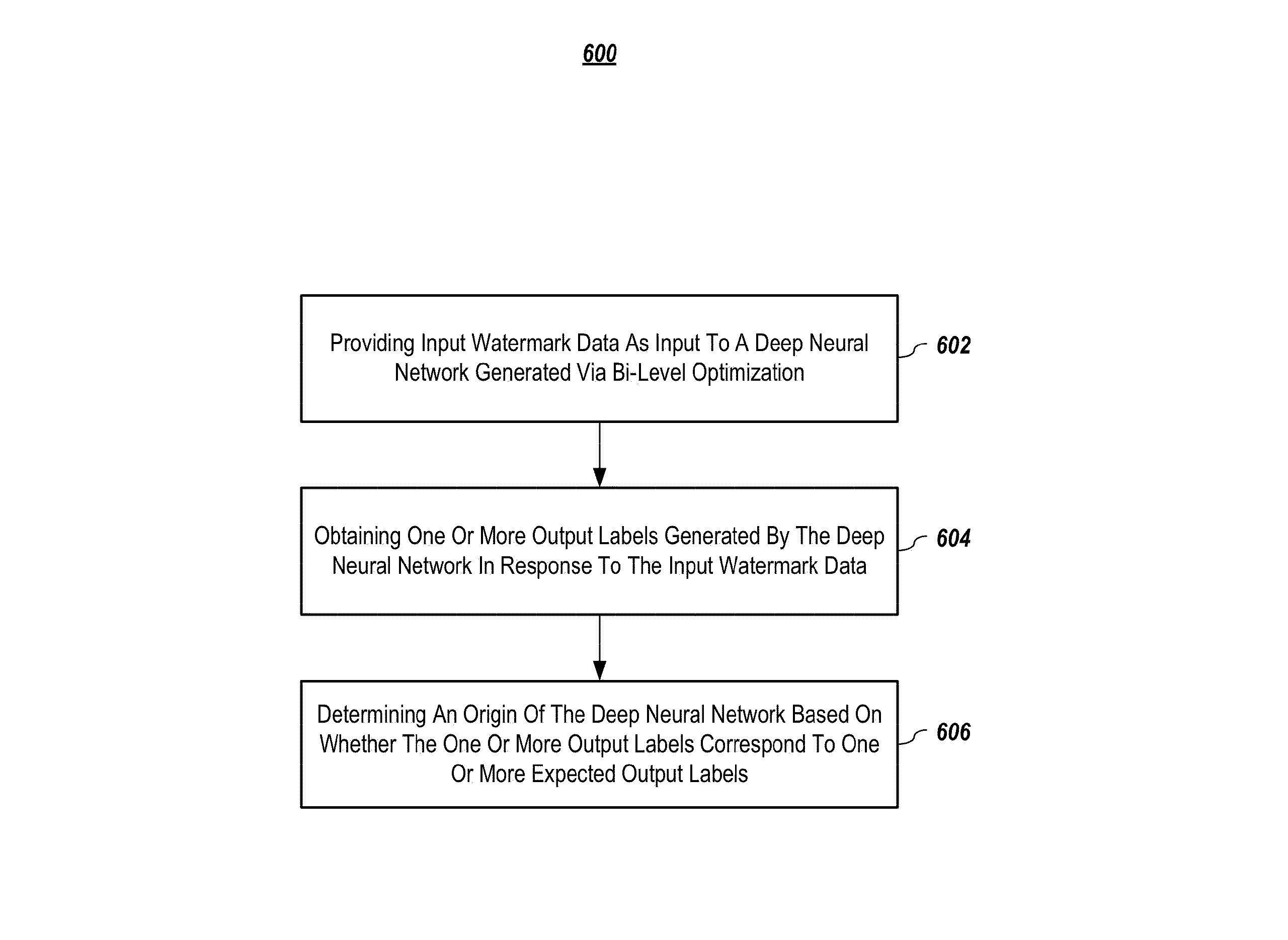
If you’ve been reading Patent Drop, this tech may sound familiar: Consulting firm Booz Allen Hamilton is working on a similar concept for machine learning models. The difference, however, is that Booz Allen’s tech focuses on embedding its mark into the model itself, while Baidu’s focuses on marking its outputs. (Because of this, we probably won’t see Baidu and Booz battling about this in a courtroom, Drayton added.)
Another difference is what they’ll likely end up doing with these methods. While Booz Allen is more likely to package this as a product and sell it to the likes of Fortune 500 companies and government entities, Baidu would likely employ this tech internally.
Given that Baidu’s tech is applied specifically to deep neural networks, which take a significant amount of investment to create and often result in very complex outputs, applying this method of catching leaks is a no-brainer.
“Say you have this neural network that can do something that no other computer program has ever been able to do,” said Drayton. “But these are quite portable, even though they’re very complex, you could put it on a flash drive. You don’t want someone to be able to just lift it or misappropriate it.”
This protection may only grow necessary as the company works to keep up with AI power players like Google, Microsoft and OpenAI, with the race to emerge on top only getting hotter.
SPONSORED BY ATAKAMA
Capitalize on Cybersecurity
It’s always good to know your investments are filling a real need that makes the world a little better. If that’s a priority for you, Atakama is an excellent option.
Atakama provides top-notch cybersecurity in a world that really needs it. Did you know that 45% of businesses have experienced a data breach or failed a security audit in the past 11 months?
Right now, individual investors – not just super-wealthy venture capitalists – can get in on Atakama’s innovative cybersecurity. But the opportunity won’t last forever.
Learn more about Atakama right here.
#3. Visa’s AI melting pot
Teamwork, usually, makes the dream work. But that upbeat philosophy gets a little murky as it relates to competitors sharing data in the race for AI dominance.
Visa, however, may have found a way for everyone to hold hands and work together.
The credit card company is seeking to patent a way to preserve privacy in machine learning. This system works by using “multiparty computation,” which can allow multiple entities to combine their data and train several different machine learning models on it, without “revealing any information beyond the outcome.”
This system relies on a “two-server architecture,” in which each client stores private data in a server that they don’t wish to share with other data clients, and subsequently encrypts or protects that data so that only they can access it. One server then can store and use all of the private data to train machine learning models, but can’t individually access any one client’s private data. Once trained, the models themselves are made available on the second server, without revealing the data they’re trained on.
Visa noted that, while working with multiple entities to combine data can create the highest quality AI models, combining that data from different sources can prove difficult, as many companies worry about “competitive advantage, privacy concerns and regulations, and issues surrounding data sovereignty.”
“Privacy-preserving machine learning … provides a promising solution by allowing different entities to train various models on their joint data without revealing any information beyond the outcome,” the company said in its filing.
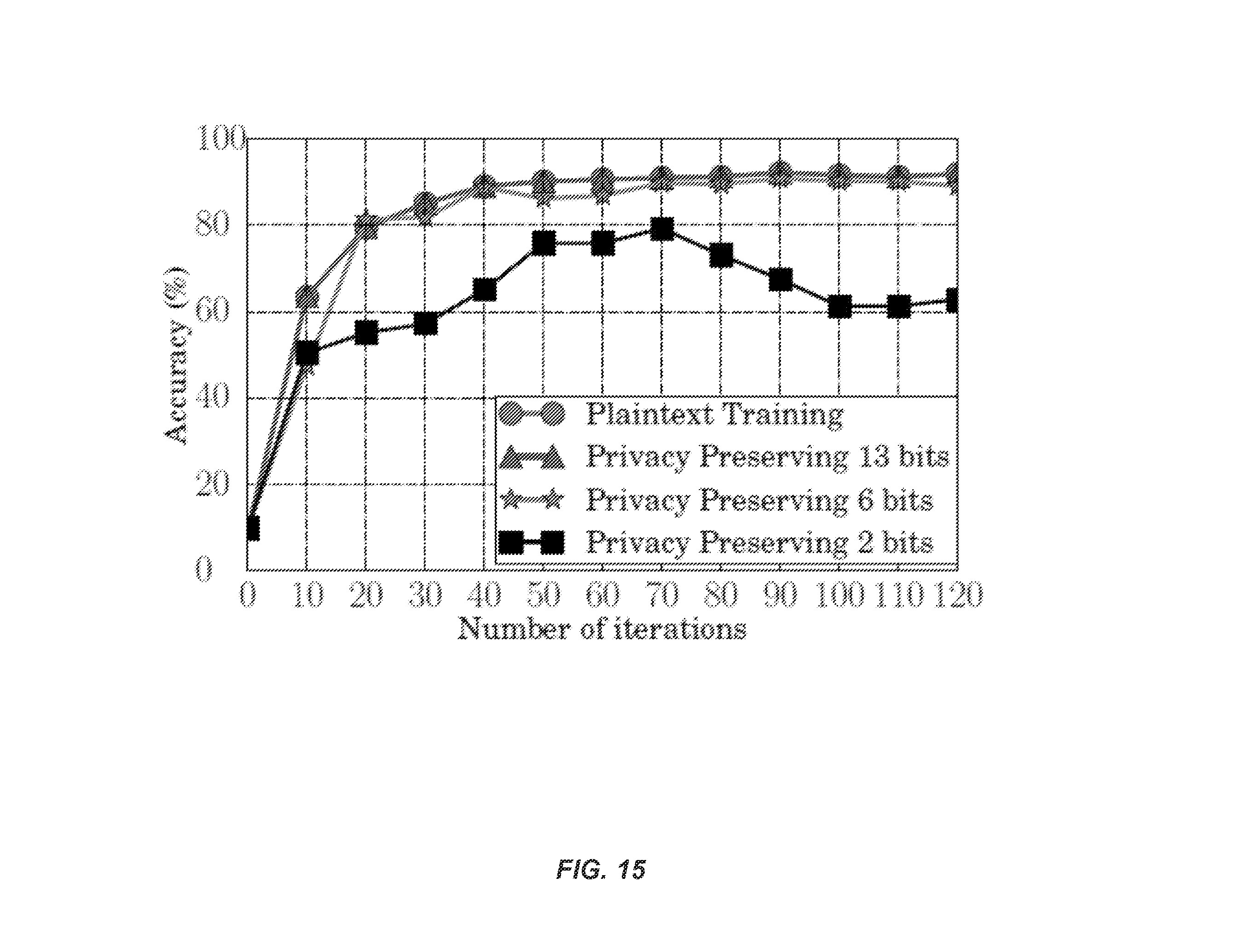
As AI develops, finding ways to protect the privacy of the data used to train AI models has been an increasing topic of conversation. Intel similarly is working on tech to protect machine learning models and the data within them, utilizing what amounts to a physical vault that doesn’t allow access to any of the training data put into it. Visa’s interest signals that this problem is being considered outside of the bounds of big tech.
That said, adopting privacy-preserving measures into its AI is a natural fit for Visa. With more than 4 billion Visa credit cards in circulation globally, the company has access to tens of billions of pieces of sensitive data, including addresses, social security numbers and more.
And as the patent suggests, the AI models that Visa is training likely rely both on its own data and that of other major financial institutions and companies. If that data somehow got into the hands of a bad actor, the end results could be disastrous.
“Large amounts of data collected over time have enabled new solutions to old problems,” Visa said in its filing. “However, the massive data collection raises privacy concerns.”
While this data can be put to good use in training machine learning models, making sure that information remains private to Visa’s customers is critical to retaining their trust.
Extra Drops
A few other good ones before you tune out.
Apple wants to make your payments less power-hungry. The company is looking to patent “low power mode for payment transactions,” which essentially limits the power consumption needed to use Apple Pay.
Google wants to get to know your surroundings. The company is seeking to patent tech that monitors a users’ environment so that a user’s AR or VR device responds to sounds.
Microsoft wants to make a teleprompter’s job easier. The company is working on a “machine learning driven teleprompter,” which essentially uses audio data to adjust the speed at which the words are being shown to the presenter.
What else is new?
Today is Patent Drop writer Nat Rubio-Licht’s birthday! As a birthday gift, go subscribe to The Daily Upside, Power Corridor and of course, Patent Drop.
Jack Dorsey thinks Elon Musk’s stewardship of Twitter has been a hot mess, and wishes that the Tesla founder had just walked away from the acquisition.
Israeli PM Benjamin Netanyahu warns Israeli tech entrepreneurs not to leave the country in protest over his judicial reforms.
Androids are everywhere. The operating system claimed 71% of the global market share this past quarter. As updates and features continue to pour in, it’s important to know how to utilize the tools Android gives you. Our friends at Android Intelligence do just that. Their no-cost weekly newsletter delivers three smart tips every Friday to help you optimize your favorite apps, boost productivity, and enhance your overall Android experience. Join tech journalist JR Raphael — sign up now and evolve your Android Intelligence.*
*Partner.
Have any comments, tips or suggestions? Drop us a line! Email at admin@patentdrop.xyz or shoot us a DM on Twitter @patentdrop.
